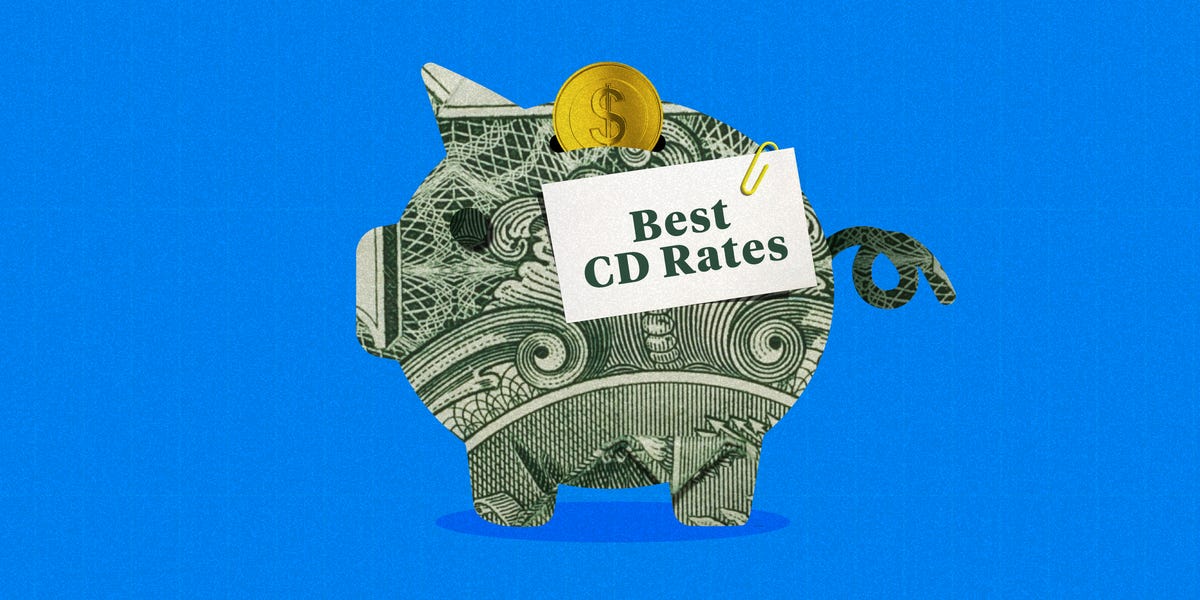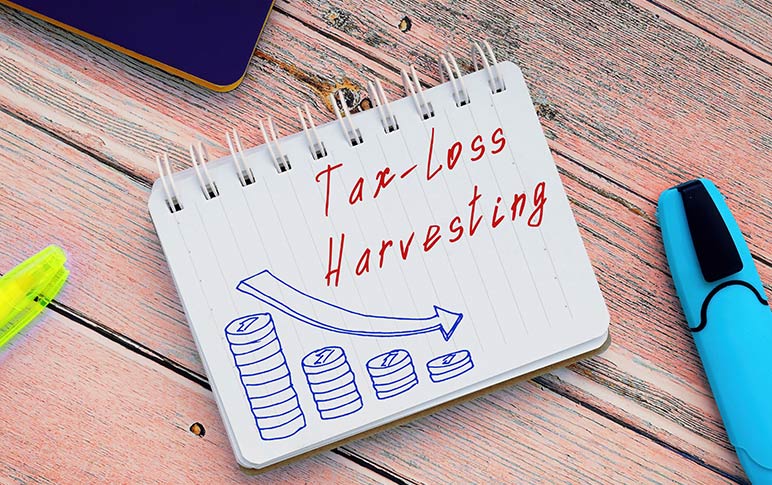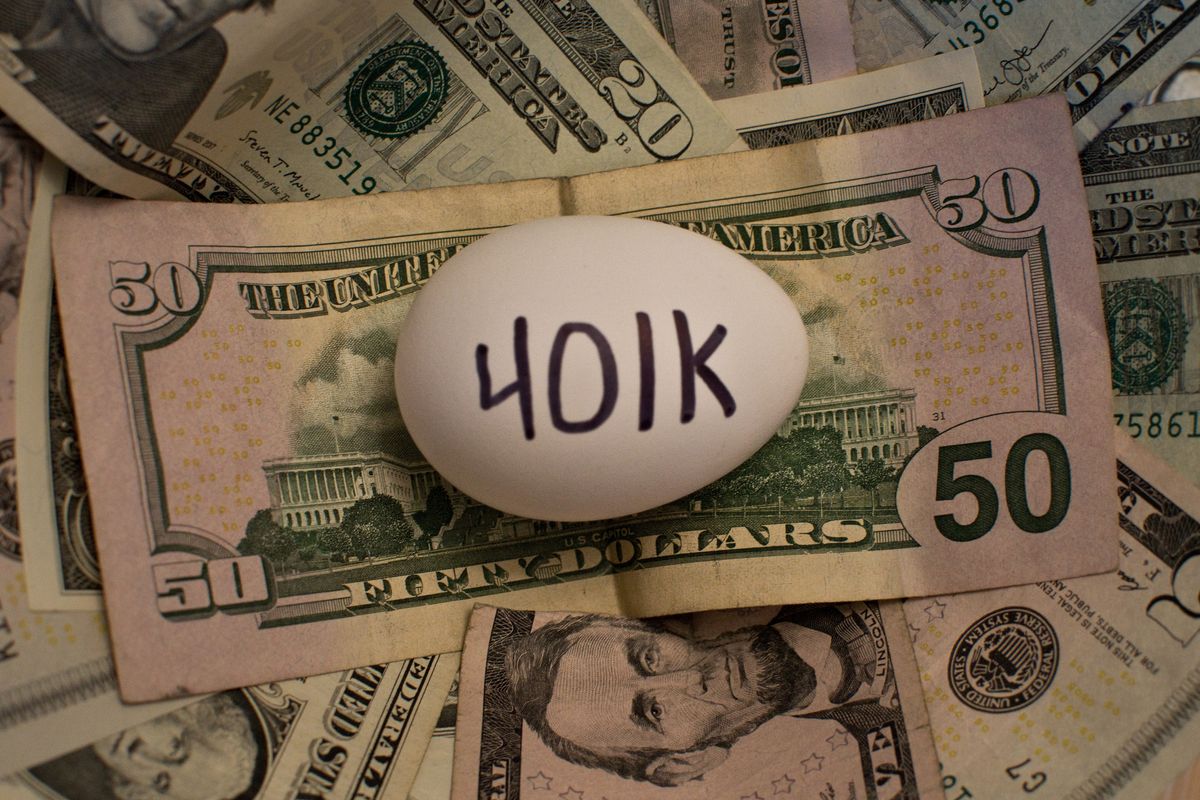Affiliate links for the products on this page are from partners that compensate us and terms apply to offers listed (see our advertiser disclosure with our list of partners for more details). However, our opinions are our own. See how we rate banking products to write unbiased product reviews.
Bạn đang xem: Best CD Rates for January 2025: Secure Top Returns
The Fed made another interest rate cut in December, which has influenced rate declines on various CD terms. The Fed won’t meet again until 2025, but it’s likely that rates will continue to fall next year. That being said, there’s still time to lock in a strong CD rate even after the rate cut.
At Business Insider, we keep track of over 160 financial institutions across the U.S. and list the best CDs currently offered. We report the highest CD rates every day to help you find the right CD.
We report on standard CDs with term lengths as low as 3 months and as high as 5 years. We also report on no-penalty CDs, CDs with no minimum opening deposits, and other specialty CDs. In addition to nationwide CD rates, we give the best CD rate found at a local financial institution to give you an idea of the CD market as a whole.
The best CD rate we’ve found is 9.50% APY from California Coast Credit Union Celebration Certificate. However, the credit union has a small footprint for eligible applicants, and there are caps on the amount of CD earnings.
Featured Nationally Available Deposit Rates
Best CD Rates Today by Term
Credit unions offer many of the best current CD rates right now. But don’t worry — anyone is eligible to join these credit unions and open CDs.
CDs aren’t as accessible as other types of savings accounts, so keep in mind how long you can keep money in the account without potentially facing early withdrawal penalties. Also, make sure you know what steps you need to take once your CD term ends.
Compare Bank and Credit Union CD Rates
The best banks and credit unions for CDs offer a high rate on certificates of deposit with good perks and low minimum opening deposits.
Our top picks for CDs are protected by federal insurance. Bear in mind money is safe at a federally insured financial institution. When a financial institution is FDIC- or NCUA-insured, up to $250,000 per depositor, per account category is secure in a bank account.
If two or more banks offer the same rate, we choose the most well-rounded account as our overall top pick. We take into consideration factors like minimum opening deposit requirements, early withdrawal penalties, and the overall banking experience in addition to the interest rate.
Here are the best CD rates as picked by Business Insider editors.
California Coast Credit Union Celebration Certificate
California Coast Credit Union currently offers a limited-time 5-month Celebration Certificate offering a whopping 9.50% APY CD rate. It requires a low minimum deposit of $500.
However, the criteria you need to meet in order to open the certificate are steep. First of all, you can only put a maximum of $3,000 in the CD. Second of all, the money in the CD has to be new, which means it can’t have previously been in a California Coast Credit Union account. You’ll also need some sort of other account with California Coast Credit Union to get the high APY. You can have an active checking account (meaning it has one transaction a month), a new money market account with a minimum balance of $5,000, a new regular certificate with a minimum balance of $5,000, a new IRA certificate with a minimum balance of $5,000, or a new funded consumer loan that isn’t either a credit card or a share-secured or certificate-secured loan.
You also need to be a member of California Coast Credit Union. Membership is limited to people who live or work in San Diego or Riverside counties, to people in select employee groups, and to people who live with a member.
Term options: California Coast Credit Union has terms ranging from 3 months to 5 years, as well as a 5-month celebration certificate, an 8-month liquid certificate, and an 18-month bump rate certificate.
Penalties: California Coast Credit Union certificates have the following early withdrawal penalties:
- 90 days interest for terms of 6 months or less
- 180 days interest for terms from more than 6 months to 24 months
- 365 days interest for terms of more than 24 months
Farmers Insurance Federal Credit Union No-Penalty Share Certificate
Farmers Insurance Federal Credit Union offers a strong rate on its 9-month no-penalty share certificate. It’s also a credit union anyone can join by also joining the American Consumer Council for free. You can also join if you work for Farmers or if you’re a family member of someone who’s already part of Farmers Insurance Federal Credit Union.
Farmers Insurance puts limits on how many times you can withdraw money from your certificate. You can only withdraw money from your CD once per month, and you can’t withdraw money during the first month. If you want a more flexible no-penalty CD, you might want to consider one of our other top picks.
Term options: Farmers Insurance Federal Credit Union offers one 9-month no-penalty share certificate.
Penalties: This is a no-penalty CD, so there are no early withdrawal penalties.
Popular Direct 3 Month CD and Popular Direct 3 Year CD
Popular Direct offers good rates on several of its CDs, but its most competitive rates are its 3-month and 3-year CDs. Popular Direct CDs compound interest daily, which could make a difference depending on how much money you put in your account.
Popular Direct requires a large minimum opening deposit of $10,000 to open an account. It also charges relatively high early withdrawal penalties if you need to take money out before the end of the CD’s term length. If either of these are a problem for you, you might prefer one of our other choices.
Term options: Popular Direct offers CDs with term lengths from 3 months to 5 years.
Penalties: Popular Direct charges the following early withdrawal penalties:
- 89 days of simple interest for terms less than 91 days
- 120 days of simple interest for terms from 91 days to less than 1 year
- 270 days of simple interest for terms from 1 year to less than 3 years
- 365 days of simple interest for terms from 3 years to less than 5 years
- 730 days of simple interest for terms of 5 years or more
Popular Direct Review
First Tech Federal Credit Union 6 Month CD
First Tech Federal Credit Union offers a promotional 6-month CD with the current highest interest rate for 6-month CDs, along with Bellco Credit Union. First Tech requires a minimum opening deposit of $500, which is lower than average.
You’ll need to use new money to open this CD, which means the money to fund the CD can’t come from a First Tech account.
The easiest way to join First Tech Federal Credit Union is to become a member of the Computer History Museum or Financial Fitness Association. Joining the former costs $15, while joining the latter costs $8. You can join both organizations as part of your application process. Other ways you can become a First Tech member include working for a select employer group, working for the state of Oregon, living or working in a specific area of Oregon, or having a family or household member who’s already a part of First Tech.
Term options: First Tech Federal Credit Union offers CDs with terms ranging from 6 months to 5 years.
Penalties: First Tech Federal Credit Union charges the following early withdrawal penalties:
- 7 days of simple interest if you withdraw within the first six days of opening the account or if you make partial withdrawals within 6 days of each other, no matter the term length
- No early withdrawal penalties for terms of less than 1 year
- 180 days of simple interest for terms of one year to 2 years
- 270 days of simple interest for terms greater than 2 years
EagleBank 12 Month CD
EagleBank offers the best 12-month CD rate at U.S. banks.
If you’re unfamiliar with EagleBank, it’s a local financial institution in Maryland, Virginia, and Washington, DC. You can also open a high-yield savings account and online CDs ranging from 6 months to 18 months if you don’t live near a branch.
You’ll only be able to deposit a maximum of $500,000 into a CD. Another downside to banking with EagleBank is that its mobile banking app has lackluster ratings in both the Google Play and Apple stores.
Terms: EagleBank has online terms ranging from 6 months to 18 months. You can also open other terms by calling the bank or visiting a location in Virginia, Maryland, or Washington, DC.
Penalties: The following early withdrawal penalties may apply to online EagleBank CDs:
- 3 months of interest for online EagleBank CDs ranging from 6 months to 18 months
Credit Human 18 Month Share Certificate and Credit Human 2 Year Share Certificate
Credit Human offers good rates on several of its certificates, especially its 18-month and 2-year certificates. All of its CDs come in 1-month term length increments, and it offers CDs with term lengths of up to 10 years. If you’re looking for CDs that have a lot of flexibility around term lengths, Credit Human certificates might be a good choice for you.
Credit Human’s membership eligibility requirements are easy to meet by credit union standards. The easiest way to join is by becoming a member of the American Consumer Council. You can also join by living in certain parts of San Antonio or New Orleans or by being related to a current Credit Human member, among other methods.
Terms: Credit Human CDs have term lengths ranging from 3 months to 10 years.
Penalties: Credit Human early withdrawal penalties are the greater of $50 or the following penalties:
- 90 days of interest for terms of 3 months
- 180 days of interest for terms of 6 months
- 270 days of interest for terms of 1 year
- 365 days of interest for terms of 3 years
- 730 days of interest for terms of 5 years
- 1095 days of interest for terms of 8 years to 10 years
America First Credit Union 4 Year Certificate and America First Credit Union 5 Year Certificate
America First Credit Union is one of the best credit unions for CDs. It offers the highest rate for a 4-year and 5-year CD. An America First Credit Union Certificate may be worthwhile if you’re searching for a financial institution with branches in Arizona, Idaho, Nevada, New Mexico, and Utah. America First Credit Union offers non-standard CDs in addition to their regular CDs, such as IRA CDs, flexible CDs, and bump-rate CDs.
Credit unions require membership to open bank accounts. You may join America First Credit Union if you live, work, worship, or volunteer in an Arizona, Idaho, Nevada, New Mexico, Oregon, or Utah county on its membership list. If you have a family member or spouse who is a current member, you’re also eligible.
Term options: America First Credit Union has terms ranging from three months to 60 months. It also offers IRA certificates, flexible certificates, and bump-rate certificates.
Penalties: America First Credit Union has the following early withdrawal penalties:
- 60 days of interest for terms of 1 year or less (at least $5)
- 180 days of interest for terms of more than 1 year (at least $5)
Xem thêm : Why money always feels hard — especially around the holidays
America First Credit Union Review
Compare CD Rates by Term
Below, you’ll find our picks for the best CD rates right now. There isn’t one particular CD that will work for everyone, but we combed through offerings at around a dozen national banks to find the strongest options available right now. If more than three CDs share the top rate, we put the three highest-rated CDs in our guide. We also ordered CDs from highest to lowest editorial rating if they offered the same rate so you know which ones are the most well-rounded options.
Best 3-Month CD Rates
Best 6-Month CD Rates
Best 1-Year CD Rates
Best 18-Month CD Rates
Best 2-Year CD Rates
Best 3-Year CD Rates
Best 4-Year CD Rates
Best 5-Year CD Rates
Best No-Penalty CD Rates
Best Rates for No Opening Deposit
Best Rates for Other CD Terms
Types of Certificates of Deposit
Locking your money into an account in exchange for a higher interest rate can be a big decision. Here’s what you need to know about common CD terms.
No-Penalty CDs
Most CDs charge you a fee if you need to withdraw money from your account before the term ends. But with a no-penalty CD, you won’t have to pay an early withdrawal penalty. The best no-penalty CDs will offer rates slightly higher than the best high-yield savings accounts and can offer a substantially improved interest rate over traditional brick-and-mortar savings accounts.
However, there may be other reasons for wanting to open a savings account versus a no-penalty CD. Carefully review both accounts and see which is a better fit for reaching your needs.
6-Month CDs
The best 6-month CDs are offering interest rates around 5%. Six-month CDs are best for those who are looking for elevated rates on their savings for short-term gains, but are uncomfortable having limited access to their cash in the long term.
These can be a good option for those who may just be getting started with saving, or who don’t have a large emergency fund for unexpected expenses.
1-Year CDs
The best 1-year CDs also offer around 5%, and are a popular option for many investors.
A 1-year term can be an attractive option for someone building a CD ladder, or for someone who has a reasonable cash safety net but is still concerned about long-term expenses. Financial planners often recommend this CD strategy of laddering several terms so that you have additional flexibility while still being able to lock in higher rates.
2-Year CDs
The best 2-year CD rates will be slightly lower than 1-year and no-penalty CD rates. In exchange for a longer lock-in period, investors receive a long-term commitment for a specific rate. These are best used as part of a CD ladder strategy, or for those worried about a declining rate market in the foreseeable future.
3-Year CDs
The best 3-year CDs tend to have rates that are comparable to 2-year CDs. These are usually less popular for your average investor, but can be an important lever when diversifying investments and hedging against the risk of unfavorable rate markets in the long term.
5-Year CDs
The best 5-year CDs will offer lower rates than the other terms on our list, but are still popular options for investors. These CDs are best for those looking to lock in high rates for the long term. CDs are generally viewed as safe investment vehicles, and securing a favorable rate can yield considerable earnings in year three and beyond — even if rates fall elsewhere.
Jumbo CDs
A jumbo CD is a type of CD with a much higher minimum opening deposit than the average traditional CD. In exchange, jumbo CDs usually offer better rates than you would find with traditional CDs. If you have a lot of money to put in a CD, jumbo CDs might be a good choice for you.
Bump-Up CDs
Bump-up CDs are a type of CD that lets you raise your CD rate once during the term length if your financial institution’s rates go up. These are also sometimes called bump-rate CDs or raise-your-rate CDs. Some banks and credit unions let you raise your rate more than once, so if that’s something you’re interested in, you should check with your financial institution before you open the CD.
Step-Up CDs
Step-up CDs are similar to bump-up CDs in that their special features center around raising the interest rate you get on your CD. However, step-up CD rates are locked in when you open the CD; you’ll know exactly when your rate will raise, and by how much, when you open the CD.
For example, an 18-month step-up CD might start at 1% APY, or annual percentage yield, raise to 1.5% APY after 6 months, and raise to 2% APY after a year. These rate raises aren’t dependent on market fluctuations like bump-up CDs are.
IRA CDs
IRA CDs are a type of retirement account. They work just like traditional CDs, but they have different rules when it comes to the taxes you pay and the way you withdraw money. IRA CDs can be traditional IRAs, which defer the taxes you pay on your money until you’re ready to withdraw it, or Roth IRAs, which you pay taxes on up-front but are otherwise tax-exempt if you withdraw your money when you’re retirement age.
You’ll have to pay early withdrawal fees on any money you withdraw from IRA CDs before their term lengths are up. But depending on how old you are and what type of IRA it is, you might have to also pay taxes and penalties on what you withdraw. If you have a non-IRA CD, you’ll need to pay taxes on the interest your CDs make each year. As long as you aren’t withdrawing money from your early, you won’t have to pay taxes yearly on your IRA CDs.
What Makes a CD the ‘Best’?
Highest Interest Rates
When opening a CD, one of the most important things to consider is the interest rate. CD rates are impacted by the Federal Reserve’s decisions. As a result of the Fed’s latest rate cuts, CD rates have been declining. There are still a few CDs offering 5% interest.
Keep in mind it’s also likely that CD rates will drop in the future. Notably, there’s less room for long-term CD rates when rates decline since accounts offer around 4% APY, while short-term CDs are still paying around 5% APY.
Favorable Terms
While the interest rate is important, you’ll also want to make sure other aspects of the CD fit your needs, too. Consider whether you want a short-term CD vs. a long-term CD and act accordingly; you don’t want to end up hit by early withdrawal penalties because you took out a CD with a too-long term length, and you don’t want to miss out on savings because you took out a short-term CD and interest rates dropped.
You’ll also want to consider types of CDs, too. If you’re interested in the best CD rates for seniors, for example, you might want to look for CDs that give better interest rates for senior citizens. And if you’re interested in planning for retirement, you might want to consider IRA CDs over traditional CDs.
Safety and Insurance
Make sure that the bank or credit union is FDIC- or NCUA-insured before putting money in a financial institution. FDIC insurance keeps your money safe in banks up to $250,000 per person, per account type. NCUA insurance works similarly but is only for credit unions.
Factors to Consider Beyond Just the Rate
Minimum Deposit Requirements
If you have a limited amount of money to put in a CD, you’ll want to check what the minimum opening deposit is for the CD. A minimum opening deposit of $1,000 is fairly standard, but you can find CDs that permit a deposit of $0 upfront. If you’re looking to open a much larger CD, jumbo CDs usually have minimum opening deposits that are far higher than those for standard CDs.
If you’re not certain how much money to deposit into a CD, think about what you’re saving money for and create a savings goal that can help make this idea more tangible. Setting up a timeline can also help you determine how much you’ll need to deposit upfront to reach your end goal.
Early Withdrawal Penalties
If you aren’t sure whether you can keep money in a CD for its entire term length, you’ll want to check what early withdrawal penalties your CD charges. This generally takes the form of deducting a certain amount of interest from your account, such as 90 days’ interest for a 6-month CD. A compound interest calculator can help you figure out exactly how much this is for your CD.
If you want to be able to withdraw money without incurring these penalties, you’ll probably want to go for a no-penalty CD. No-penalty CDs let you withdraw your money without penalty in exchange for generally slightly lower interest rates.
Account Fees
Some bank accounts come with monthly service fees, which will automatically deduct a small fee from your account each month. Luckily, you generally don’t have to worry about these for CDs; they’re more commonly found on checking accounts, money market accounts, and traditional savings accounts. However, you should always check before opening a CD to make sure there aren’t any fees associated with the account.
Bank/Credit Union Reputation
It’s important to make sure the financial institution you open a CD with is trustworthy and safe. Before opening a CD with a bank or credit union, check their BBB page, see if they’ve been involved in any recent lawsuits, and research whether they’ve had any recent data breaches.
You might also want to consider banking with an eco-friendly bank, a minority depository institution, or a community development financial institution. These banks use the money you put in your accounts to help the environment and underserved populations.
CD Auto-Renewal
Generally, your CDs will auto-renew at the end of the term length, giving you a short window when the original CD closes to choose not to renew. There are a few things to look out for with CD auto-renewal. If interest rates have changed since you opened the original CD, your new CD with have the updated interest rate. If interest rates have fallen, you’ll probably want to close out your CD instead of auto-renewing. Additionally, many promotional CDs with auto-renew into one of the bank’s standard CDs with much worse interest rates. Make sure you understand what your CD will renew into at the end of the term length so you can take appropriate action.
CD Taxation
Just like any interest-bearing account, you’ll be taxed on the interest income you earn from your CD. If you have a CD, you’ll need to fill out a 1099-INT form when you file your taxes with the IRS. If you have a traditional IRA CD that you withdraw from early, you’ll need to pay taxes on everything you withdraw since traditional IRAs are a before-tax account. This tax is in addition to whatever CD early withdrawal penalties you have to pay. Tax software can help make sure you’re filing your CD taxes correctly.
Comparing CDs to Other Financial Products
CDs vs. Traditional Savings Accounts
In general, you’ll earn a much higher rate with a CD compared to traditional, brick-and-mortar savings accounts; average CD rates far outpace average savings account interest rates. You’ll also be locking in your rate; CDs come with a fixed interest rate, while savings accounts have variable interest that can change at any time. That being said, savings accounts give you much easier access to your money than CDs, and high-yield savings accounts from online financial institutions also offer great interest rates.
CDs vs. Money Market Accounts
Money market accounts are like traditional savings accounts, but they usually have a tiered interest rate structure that gives you a better interest rate the more money you put in the account. They also sometimes come with checks or other ways to access the money besides ACH transfers or wire transfers.
If you’re planning on putting a lot of money into a money market account, its interest rate might be competitive with the interest rates CDs offer. And they’re a better choice if you want easy access to your money. But high CD interest rates are easier to earn than high money market interest rates, and average money market rates are lower than average CD rates. CD interest rates are also locked in, while money market accounts have variable rates.
CDs vs. Bonds
Bonds and CDs are similar in that they both offer fixed interest. While most other savings accounts have an interest rate that can change at any time, you can lock in a rate for a specific length of time with bonds and CDs. One big difference between bonds vs. CDs is that CDs are a banking product, while bonds are traded. CDs are federally insured through the FDIC, while bonds aren’t, although you can get treasury bonds from the federal government that are similarly low-risk.
That being said, depending on market conditions, bonds might offer a higher rate than CDs. Bonds also tend to be longer-term, and some bonds, such as treasury bonds, are tax-advantaged.
How Banks Come Up With CD Rates
Banks and credit unions base their CD rates on several different economic factors. One of the biggest economic factors is the Federal Reserve. The Federal Reserve is the central banking system of the U.S., and the rates it sets inform the rates that banks and credit unions set.
Since CDs have a fixed rate of return, CD rates are based on both the current federal funds rate and what banks and credit unions expect the federal funds rate to be in the future.
Banks and credit unions also need to stay competitive with each other to be successful, so financial institutions also base their rates on what other financial institutions are offering.
Secure the Best CD for Your Financial Future
When looking for where to find the best CD rates, you’ll want to consider several factors, including interest rate, minimum opening deposit, early withdrawal penalties, and bank safety. You’ll also want to factor what banks and credit unions are accessible to you. If you know you don’t enjoy online banking, you’ll probably want to choose a brick-and-mortar bank or local credit union, even if their rates aren’t as good as the ones in this article.
Best CD Laddering Strategies
Sometimes, opening just one CD isn’t the best option for your savings. A CD ladder strategy can give you more flexibility and liquidity than a regular CD while still letting you lock in a great rate for a significant amount of time.
To open a CD ladder, you just open multiple CDs with different term lengths at once. For example, if you have $120,000 you want to put in a CD, instead of putting all of that money into just one CD, you spread it across several. For example, you might open a 1-year, 2-year, and 3-year CD, putting $40,000 in each. That way, you’ll have some of your money back within a year in case of an emergency, but you’ll be earning a great interest rate for three years. You don’t need to open these CDs at the same bank, which means you’ll have more flexibility to choose CDs with the best rates or features.
CD ladders can help mitigate the risk that you’ll need to withdraw your funds before the CD’s term length is up. This makes it a low-risk way to diversify your portfolio. That being said, CDs won’t earn you as much money on average as investments do. You’ll get a guaranteed growth rate with CDs, but you’ll get a higher rate overall, albeit with some amount of risk, with a brokerage account or other investment strategy.
Why You Should Trust Us: Experts’ Advice on Choosing the Best CD
We consulted banking and financial planning experts to inform these picks and provide their advice on finding the best CDs to use for your money. You can read their insights at the bottom of this post.
Xem thêm : Top wealth management news stories about DEI in 2024
BI
Here’s what they had to say about CDs. (Some text may be lightly edited for clarity.)
What makes a CD good or not good?
Mykail James, MBA, certified financial education instructor, BoujieBudgets.com:
“You always want to look at how much money you need to start up. And then if you can continuously add money in. Also, check not just what the interest rate is, but how often they pay out interest, whether it’s monthly or quarterly.”
How should someone choose a CD term length?
Roger Ma, CFP® professional and author of “Work Your Money, Not Your Life”:
“I would think about when you need the money and then compare that with what the prevailing CD rates are, and then what makes sense from a financial perspective, but also from your own personal timing perspective.”
Mykail James, CFEI:
“I believe in having a plan for whatever the funds are. If it’s supposed to be a house fund, and you want to wait for another two years to buy a house, that’s what you should be thinking of when you want to have this money.”
How should someone decide whether to put their money in a high-yield savings account, money market account, or CD?
Tania Brown, CFP® professional and vice president of coaching strategy at OfColor:
“So I guess we’ll start off with how much money you want to put in and the level of transactions you want to have. If you want to have any transactions, that automatically takes out CDs. Then you’re stuck between the high-yield savings and the money market account.”
Sophia Acevedo, banking editor, Business Insider:
“Generally, I think a high-yield savings account or money market account could be good options for an emergency fund or short-term savings goals. A high-yield savings account offers a higher interest rate than traditional savings accounts at brick-and-mortar banks.
“Meanwhile, money market accounts might be worth considering if you want more account accessibility — several offer paper checks, ATM cards, or debit cards. CDs could be worthwhile if you don’t need access to some of your money, since they have a fixed interest rate for a specific term.”
Methodology: How We Chose the Best CDs
At Business Insider, we aim to help you make smart decisions with your money. We thoroughly research banking products with the goal of providing helpful content about personal finance.
Business Insider’s personal finance team is editorially independent, which means our business team does not decide how we cover products and what we write about. You can read our editorial standards page to learn more about how we review and choose products in greater detail.
In order to choose the best CDs, we reviewed over 160 financial institutions. All banks included on our list are FDIC-insured, while credit union CDs offer insurance through NCUA.
We’ve selected the top CD offerings from banks and credit unions using our bank account methodology. We rate bank products on a scale from one to five stars, with one star being the lowest rating and five star being the highest rating possible.
For CDs, we consider what terms are offered, along with the accounts’ minimum opening deposit requirements, interest rates, fees, miscellaneous features, and early withdrawal penalties. We also consider the financial institution’s customer service options, ethics, security and mobile app ratings. We score each of these features on a scale of zero to five, then calculate the weighted average to determine the account’s total rating.
If two banks offered the same APY on a CD product, we considered factors like minimum deposit requirements and early withdrawal penalties.
Best CD FAQs
A CD, or certificate of deposit, is a time-sensitive savings account that holds your money at a fixed interest rate for a specified period of time. You can open one at almost any bank or credit union.
The highest-paying CD rate right now is available at California Coast Credit Union. It has 5-month celebration certificate paying 9.50% APY, but this CD special only allows a $3,000 maximum opening deposit and requires you to have another bank account with the credit union that meets certain requirements. To become a member and open a certificate, you must live, work, or go to school in San Diego or Riverside counties or be part of select employee groups.
You can lose money in CDs if you withdraw your money before the end of the term length. You might also lose money in a CD if the financial institution you’re using fails and you have more money in the account than the FDIC or NCUA covers, but that’s unlikely to happen.
The best CD rates aren’t always from online banks. While online banks tend to have the best bank CD rates, there are plenty of credit unions and even a few national brick-and-mortar banks that also have good CD rates. Always make sure to check multiple financial institutions when looking for a CD.
Timing matters. CDs are a good investment if interest rates are currently high and/or expected to fall. The biggest benefit of a CD is your ability to lock in a fixed interest rate. If interest rates fall during the term of your CD, the APY on your CD will not be affected. Conversely, if rates are expected to rise, then it may not be a good time to put money in a CD.
Higher CD rates aren’t coming. In fact, the Fed cut interest rates in its September, November, and December 2024 meetings. It’s expected that rates will continue to drop through 2025. The Fed’s economic projections indicate that CD rates might continue to fall as far in the future as 2027.
Yes, you can get a 5% interest rate on a CD. The nationwide credit union Nuvision Federal Credit Union offers a CD with at least 5% interest.
No, you currently can’t get 7% interest on a CD. However, the California Coast Credit Union Celebration Certificate is currently offering an even higher interest rate of 9.50% APY. You’ll have to meet some pretty strict requirements, though, such as living in specific parts of California.
You can know if a bank or credit union offering the best CDs is safe by checking for federal insurance. For banks, make sure they have FDIC insurance, and for credit unions, make sure they have NCUA insurance.
CDs are safe because you open these accounts at federally insured financial institutions. If a bank shuts down, the FDIC will keep up to $250,000 per depositor, per ownership category secure.
Yes, CDs are taxable. Banks send a 1099-INT form and you report CD interest in your annual tax return.
Nguồn: https://horizontalline.icu
Danh mục: News







